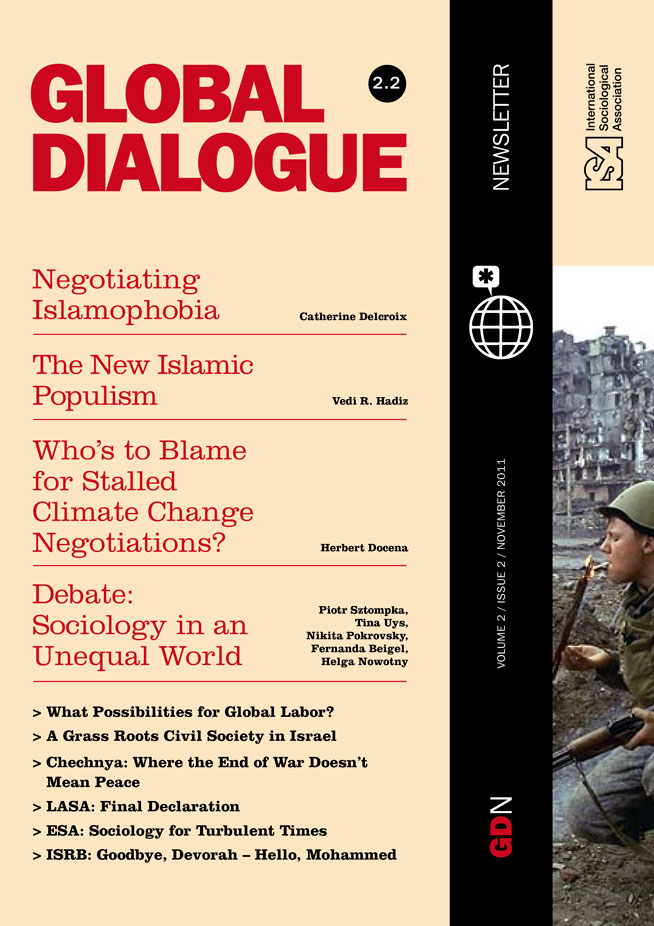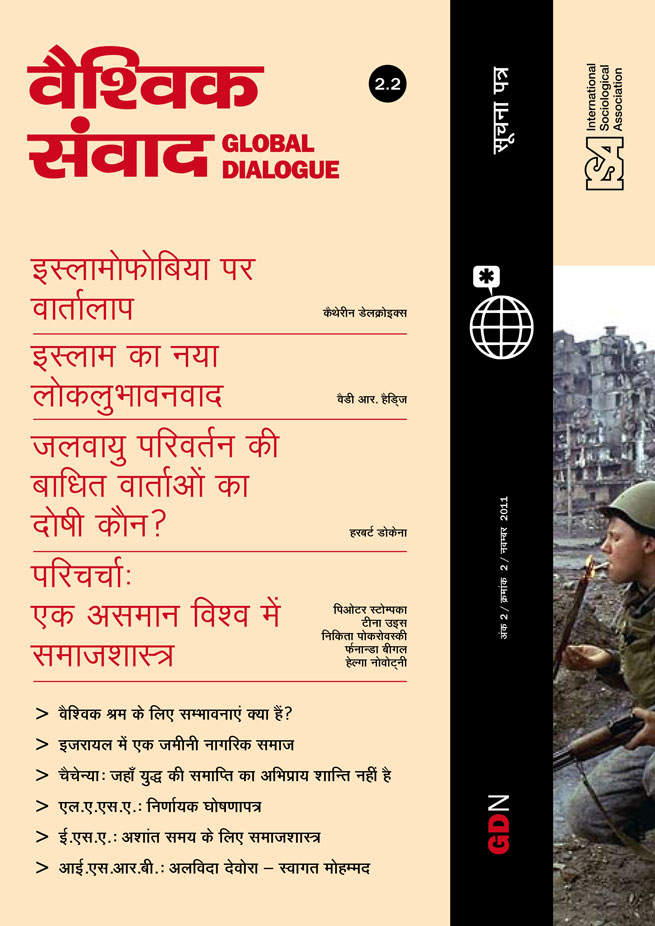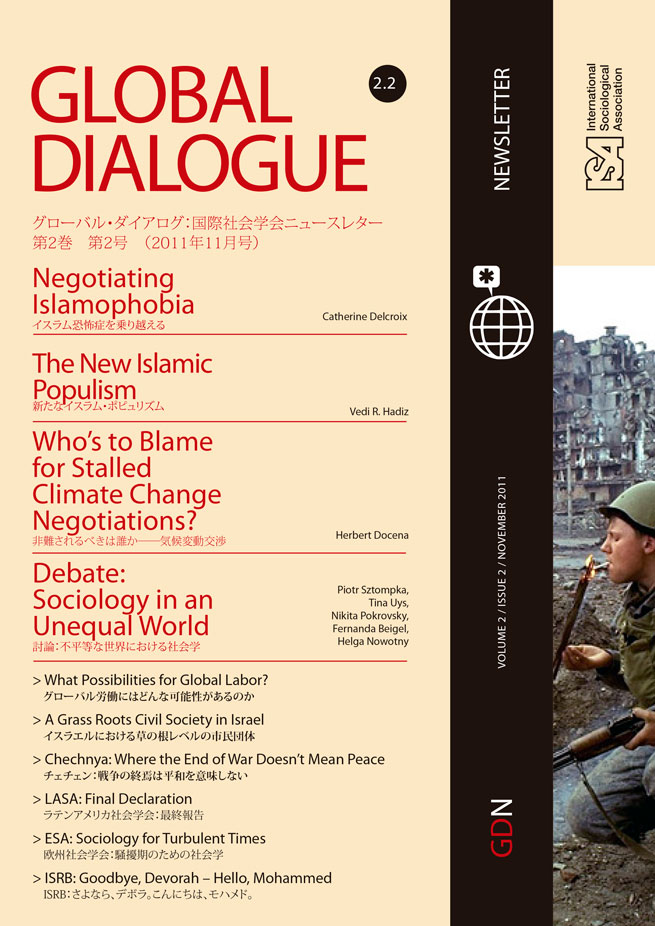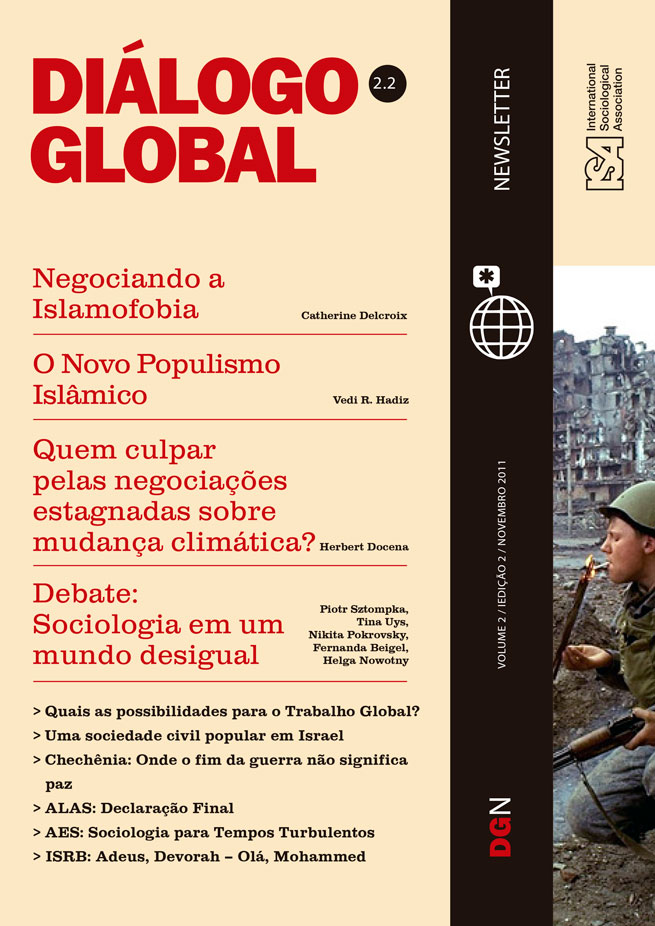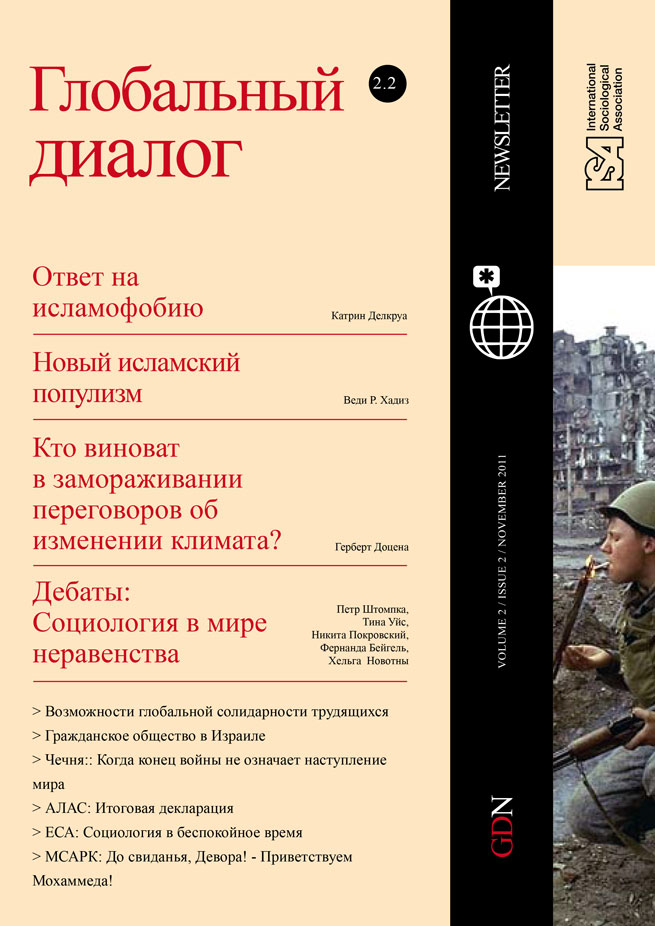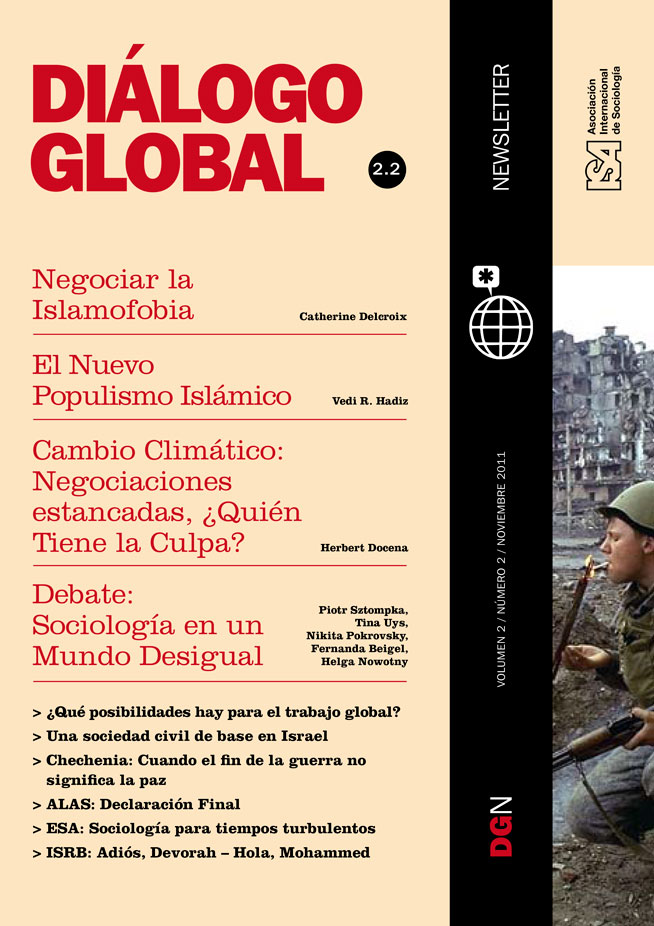The piece written by Piotr Sztompka follows his review of a three-volume set of conference papers presented at a meeting of the International Sociological Association (ISA) Council of National Associations in Taiwan in 2009. Sztompka’s review was published in Contemporary Sociology along with a response by Michael Burawoy, the organizer of that meeting and the former ISA Vice-President for National Associations. The theme of the Taiwan meeting was Facing an Unequal World: Challenges for a Global Sociology, which is also the theme of the next ISA World Congress of Sociology in Yokohama, Japan, in 2014.
Contrary to Sztompka I do not see the volumes as developed with ‘revolutionary fervor’, but rather as an attempt to advance an understanding of the unequal organization of knowledge production and exchange between core and periphery.
It might be useful at this point to provide some historical notes about the ISA and its relationship with the national associations. When the ISA was founded in 1948 on the initiative of UNESCO, its membership was restricted to national associations and, therefore, collective in nature. In 1970, individual membership was introduced, which broadened international involvement in the ISA and strengthened the development of research committees, but it also gradually led to a decline in the importance of national associations in the decision-making structures of the ISA. When the ISA introduced portfolios for its vice-presidents for the 1974-1978 term (Research Council, Programme, and Membership and Finance), national associations were conspicuously absent. During the 1994 World Congress in Bielefeld, the Council of National Associations was replaced as the main decision-making body of the ISA by an Assembly of Councils consisting of the Research Council and the Council of National Associations.[1]
Since the ISA’s inception, the election of Presidents was predominantly the domain of Europe (10) and the USA (5), with Fernando Cardoso from Brazil (1982-1986) and T.K. Oommen from India (1990-1994) being the only exceptions. Presidents of Research Committees for the present term (2010-2014) are also overwhelmingly from the Global North. Sztompka might argue that this is an indication of the importance of ‘excellence’ over ‘balance’. Raewyn Connell[2] might take a different view. It could be seen as a demonstration of the general tendency to consider theorizing in social science to be the domain of the Global North, while the Global South is relegated to data-collection and application, resulting in ‘metropolitan dominance and peripheral marginality in social science’ (2007: 219). Other factors also might come into play, such as work from the Global North being more widely shared because of the widespread distribution of its published materials, popular centers of graduate study and/or language accessibility.
According to the ISA Statutes, the goal of the organization is ‘to represent sociologists everywhere, regardless of their school of thought, scientific approaches or ideological opinion, and to advance sociological knowledge throughout the world’. It could be argued that this statement contradicts Sztompka’s context-independent ‘one sociology for many social worlds’ and ‘universal standards of sociological research and good theory’. Understandings developed in particular contexts cannot be assumed to be universally applicable, especially if those contexts are restricted to the Global North.
Over the years the ISA has actively tried to make its goal a reality. One example is the ten regional conferences initiated by Immanuel Wallerstein, then President of the ISA, prior to the 14th ISA World Congress of Sociology in 1998, which focused on the state of world sociology from a regional perspective. A major achievement in restoring balance to the ISA decision-making structure was the election of Sujata Patel from India as the first Vice-President for National Associations in 2002. This also led to the introduction of the requirement in the ISA Statutes that, similar to the Research Council, a meeting of the Council of National Associations should take place once every four years between World Congresses. The first such meeting was held in Miami, USA, in 2005 and the outcome of the deliberations of the meeting was published in a volume edited by Sujata Patel[3] (2010) with the title ISA Handbook of Diverse Sociological Traditions.
Just as there are theories and methods that compete for our attention, there are also world views (which might be the same theories and methods). In some cases that lens might be, for instance, indigenous sociology, a gender perspective or a humanist-libertarian perspective. Indigenous sociology might mean the context of a local area within a country, a region (such as the Global South) that crosses over national borders, or how you see things from where you are based (standpoint theory), for instance, in the categories of gender, class, ethnicity and/or age. The challenge for sociology will be to keep all these differences under one roof (sociology and the ISA), because if people do not feel that they have room to be heard, they move on. So, in our ‘one science’, is there room for the differences and can they all be heard?
The next meeting of the ISA Council of National Associations in 2013 is one ideal opportunity to provide such a space. We will make it possible to have real discussion and debate – among equals – around the topics and approaches that matter to sociologists in all the countries and regions. In this way we can ensure that we have excellence AND balance in producing a sociology that matters, locally as well as globally.
[1] For a fascinating account of the history of the ISA see: Platt, J. (1998) A Brief History of the International Sociological Association: 1948-1997. Montreal: ISA. http://www.isa-sociology.org/history-of-isa.htm
[2] Connell, R. (2007) Southern Theory. Cambridge: Polity Press.
[3] Patel, S. (ed.) (2010) ISA Handbook of Diverse Sociological Traditions. London: Sage.
Tina Uys, University of Johannesburg, South Africa, ISA Vice-President for National Associations


